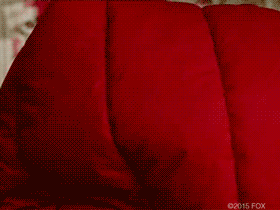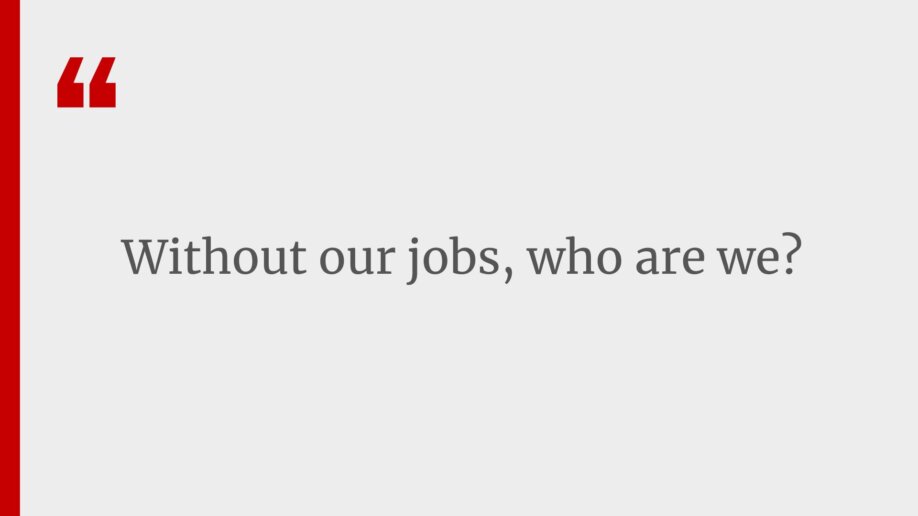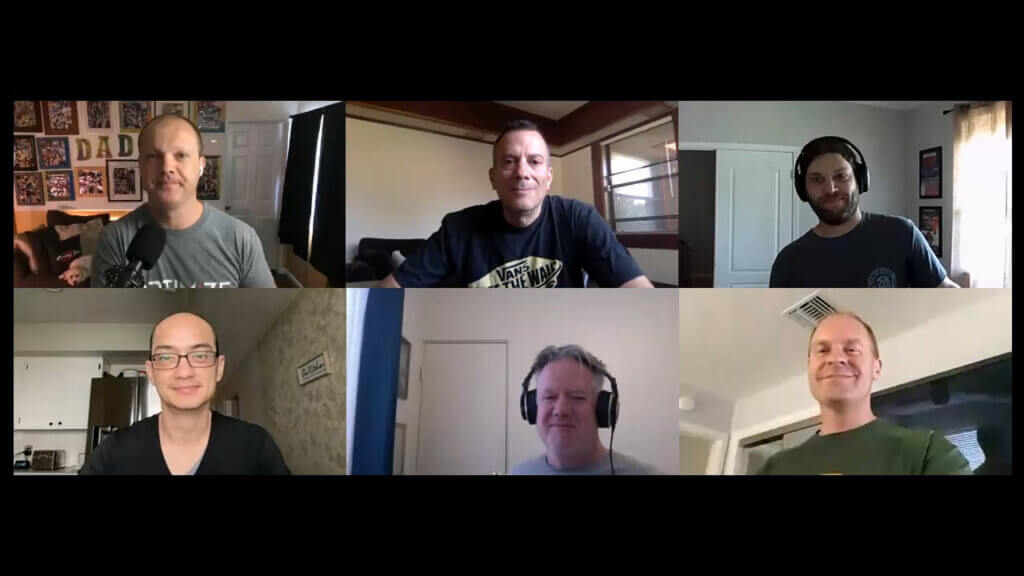I’ve been shamelessly shouting from the rooftops for months that the key to weathering uncertainty is focusing on what you CAN control.
But here’s the reality: Easier said than done, right?
It’s one thing to logically understand this down time is a great opportunity to build your professional network, learn new skills, clean out those closets, catch up on sleep, walk the picket lines in support of your fellow workers, or (God forbid) exercise.
But it’s a whole other thing to emotionally want to hide under the covers Macaulay-style until the artificial intelligence goes away.

As creatives, we are emotional creatures first and logical creatures second. If we couldn’t feel, we couldn’t be great at what we do. So it’s okay to be afraid right now. If you are anxious, overwhelmed, or depressed (or even mad as hell!!!), you are not alone. Despite the endless excuses the studios use to explain their abhorrent treatment and exploitation of us the working class, it’s not just business.
This shit is personal.
While this isn’t the first time there’s been a work stoppage caused by a strike, this time is undoubtedly different. Whether we’re willing to admit it or not, artificial intelligence has changed the game, and there’s no going back. As I stated in last week’s newsletter, I believe the collective fear & anxiety we’re all experiencing goes far beyond just an economic crisis.
We’re having an identity crisis.
Technology has slowly been replacing humans for decades, but those of us who do highly creative work always thought we’d be safe from the machines. Yet here we are watching the exponential rise of language models like ChatGPT that can write scripts in seconds, and generative AI programs like Midjourney or DALL-E that can create mesmerizing and photorealistic images with a single prompt. The complex skills that have taken us a lifetime to master can now be replicated with a few simple prompts.
Furthermore, the speed at which these programs are learning and improving is incomprehensible. Watching “AI experts” pretend to understand everything that’s happening right now is what I imagine dogs would look like trying to do Calculus. Nobody knows what the hell is going on (Full disclaimer: Including me).
It makes perfect sense that we’re fearful of technology replacing our jobs because that means it will be harder to make a living using the current skills we’ve worked so hard to learn and perfect.
But what does artificial intelligence have to do with our identities?
Enter the Industrial Revolution
For most of recorded human history, we as humans have lived as generalists. Before industrialization we didn’t specialize in a single craft, we instead survived because we knew how to simultaneously build a wood cabin, shuck corn, churn butter, shoe a horse, can our own preserves, grow our own vegetables, tan our own leather horse saddles, and all while teaching the local neighborhood kids from ages 6-16 in a one room schoolhouse.
Having grown up firsthand in a VERY rural part of northern Wisconsin, we’ve literally had members of the Amish community live on our farm, and I’ve seen the generalized lifestyle firsthand. It’s like stepping into a time machine and experiencing how the world functioned before TV & the internet ruined everything. (I’ve literally explained to an Amish person how a smartphone works…boy I wish I could’ve turned that conversation into a podcast.)
Since industrialization emerged as the primary means of production and economic growth in the late 19th century, over time we have slowly sacrificed our broad knowledge and generalized skills for the sake of maximizing productivity. We went from being able to build a complex product from end-to-end to instead installing a single screw along the way, thus ultimately becoming specialized widgets on the assembly line of someone else’s dreams.
Add decades of oppressively long hours, dark windowless rooms, the introduction of the cubicle, neglected personal relationships, the erosion of hobbies & interests unrelated to work, and the cult-like conditioning that led us to believe success was externally defined by income, recognition, prestige, and the collection of material goods, and here we are having never noticed our jobs slowly transformed from what we did to who we are.
If it’s still not clicking yet, then ask yourself what the most common question is whenever you meet someone, no matter if it’s in a personal or professional setting.
“So…what do you DO?”
When Your Career Becomes Your Identity
We’ve become so conditioned to believe our worth is defined by our work, we literally don’t even know how to talk about ourselves without the conversation centering around our jobs. Therefore, now that the emergence of artificial intelligence has created the very real possibility we may have to change what we do to support ourselves (don’t worry, I’m far more optimistic about keeping our jobs than the doom & gloom crowd), we’ve ultimately been forced to ask the question, “Without our jobs, who are we?”
If the threat of artificial intelligence coming after your job isn’t something that concerns you yet, then simply ask yourself why the hell you never get anything done when you’re unemployed. (sorry, I know that one stung a little.)
You swear up and down that during the next hiatus you’re finally going to eat better, exercise, get organized, start that garden in the backyard, or take a nice relaxing vacation. Yet as soon as you’re off the job and no longer receiving a paycheck, you wallow in a pit of despair and depression binge-watching Friends (for the 4th time) wondering if you’ll ever work again.
Psychologists have a term to describe this situation where the lines are so blurred between your work and your identity you no longer know who you are: Enmeshment.
As ambitious high achievers, our present culture preys on our need for creative recognition, prestige, and material success. And the only way to get more of all the above is to work harder. And the harder you work the more what you do becomes central to your identity.
The following are just a few possible symptoms (you may not even realize you have) when you are enmeshed with your work:
- The Anxiety of “Always Being On Call.” You simply can’t imagine not being available to respond to that Slack message or urgent email, even during off hours and weekends.
- Physical Health Problems. You experience chronic pain without having any idea where it’s coming from (or how to fix it).
- Mental Health Problems. When your identity is tied to your work (especially during periods of unemployment) you are more susceptible to anxiety, depression, and the B-word: Burnout.
- Neglected Personal Relationships. You find that sometimes you disappear for months, missing important gatherings with friends, weddings, parties, and other once-in-a-lifetime events. And eventually people stop reaching out to you.
- Lack of Hobbies or Outside Interests. When your job consumes you 24/7 you lose interest in experiencing different areas of life unrelated to your job (which ironically makes you worse at your job, especially if you are creative).
If even two or three of these sounds like you, it might be time to revisit your relationship with your work.
With Disruption Comes Opportunity
I realize this may be a lot to take in given the present circumstances (like you didn’t have enough to worry about already, amiright???), but I don’t share all of this to depress you but instead to empower you. Because we are now in the driver’s seat.
Our job, our industry, and our career no longer have to define who you are.
We are not our résumés.
As artificial intelligence rapidly advances, it will quickly take over highly specialized, repeatable, predictable, and largely data-driven tasks. You know, all the garbage we hate doing anyways. The doom & gloom crowd can scream all they want about how AI shouldn’t be allowed to take our jobs (or conversely that it will take ALL the jobs), but there is no stopping progress.
I’m not worried that we as creatives will be replaced because I don’t think we can be replaced.
Therefore I see the near future as our chance to redefine who we are not just as professionals but as human beings. We can use this technology to our advantage to regain control of our identities beyond our credits on IMDb. This is our best shot at designing the more balanced, more sustainable, and more fulfilling creative careers we all dreamed of when we first entered this industry.
If you’re thinking, “Sounds great…but HOW?” then keep an eye on your inbox for the next several weeks as I’ll be sharing a multitude of ways to rewrite the next chapter of your story and develop career resilience in the age of AI.
In the meantime, I thought I’d share a very candid discussion I had with my Optimizer students during Office Hours last week specifically about artificial intelligence, the strike, the lack of work, and what we can do to keep our heads above water.


